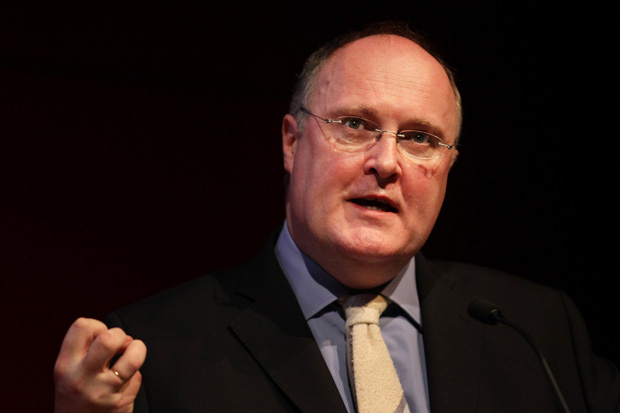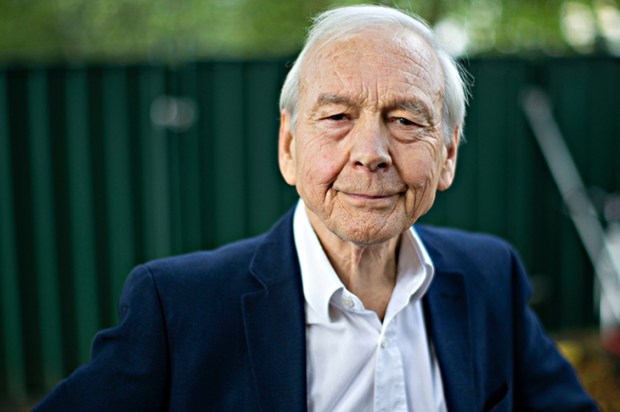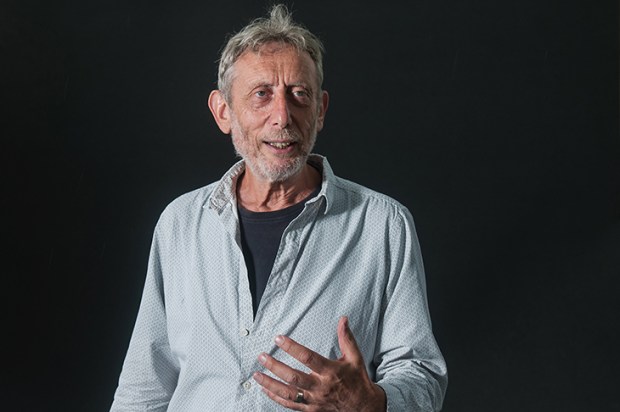The new controller of Radio Three, Alan Davey, was on Feedback this week (Radio Four) talking to listeners about his plans for the network. Roger Bolton, who presents, wondered if Davey was worried about ratings — Radio Three hovers around two million listeners compared with the 5.5 million boasted by its commercial rival Classic FM, or perhaps more alarmingly the two million lured to BBC upstart 6 Music. ‘Ratings aren’t a pressure for me,’ said an ebullient Davey, while admitting that he does want to find more listeners, and then to ensure they stay tuned. But how? Without going down the Classic FM route of more audience participation, more gimmicks, more cheesy competitions?
‘We have to get better at explaining what Radio Three is about …that it’s more than just classical music,’ Davey suggested. ‘We have to offer more explanation and context.’
As a start he’s abolished the phone-in on Breakfast and cut down the number of news bulletins, to give Petroc, Clemency and co. more time to talk about the music. ‘I want music to have more space to speak for itself,’ he explained. Davey wants ‘to add to the richness of the station’, to delve into different kinds of music, a greater variety of composers, more ‘cultural commentary’. He wants his Radio Three to be ‘informal but informed’.
You can tell Davey used to work in government as a civil servant, spending the last eight years at the Arts Council. He loves a soundbite. We just have to hope his past experience has also taught him how to fight for his department, his station, against those who think Radio Three is too niche, too much of a minority interest to be funded by taxpayers, most of whom will never listen to it. It’s a difficult argument to win in times of impoverishment (both financial and cultural). Why should 30 million households be funding the entertainment of just two million?
Strangely, the most vociferous opponents of Radio Three and other esoteric elements of the BBC tend to have had all the benefits of a ‘good’ education, and to have had an introduction to classical music, to theatre, the spoken word, galleries and museums at a young age, when such interests are often crucially implanted. They fail to appreciate the jewel that is Radio Three, there at the switch of a button, any time of day or night, encouraging us to develop a taste for Pärt, Poulenc and Purcell as well as funky jazz and clever ideas.
All of which you might catch in a single hour on Private Passions (Radio Three, Sundays), which celebrated its 20th birthday this week. Michael Berkeley, who launched the programme as a place where guests who were not professional musicians could talk about the music they loved in the hope it might reveal something about themselves, gave us some of his favourite moments from the archive. His first-ever guest was Elvis Costello, proving that Three has always been ready to experiment, play a different sound. As you might expect, there has always been a lot of Bach, of Handel, Chopin and Purcell, but John Peel (who appeared on the programme as early as 1996) wept over a violin concerto by Max Bruch, while the philosopher George Steiner wanted to hear Edith Piaf singing ‘Je ne regrette’ in an attempt to find out why we love that not-very-musical song. ‘There’s no musicological explanation for what grabs hold of you,’ he decided, just as we can never know why bad books become bestsellers.
The radio event of the week, though, was Simon Armitage’s new play for Radio Four, The Raft of the Medusa (Saturday). And not just because Armitage was the writer. A specially devised film was screened simultaneously online as the play was broadcast on air, so that you could watch as well as listen — provided you had a computer handy to hold in your lap as you relaxed in an armchair.
Inspired by Géricault’s painting of the desolated survivors of the shipwreck of the Medusa, and dedicated to the artist and filmmaker Derek Jarman who had wanted to make a film about the painting, Armitage’s drama took us to an isolated farm where Bella and Jude are wondering when the rain will stop falling. Why has the radio station stopped broadcasting, and the internet gone blank? Where is everyone else? Out of the blue a young Romanian, Gregor, turns up, unsettling Bella and Jude’s relationship and bringing news that the floods have encircled the farm. Their only escape will be a self-made raft.
The film, made by Richard Heslop, a former collaborator with Jarman, was stunning to look at, but I kept missing whole chunks of it as I struggled to concentrate on Armitage’s script. Maybe I’m just not in tune with current thinking but poets such as Armitage don’t need pictures. Their words appear magically in my mind anyway. Visualisation may be the future for radio, but do we need to illustrate everything? Isn’t listening a skill to be aided and abetted, rather than obscured, and especially in these conflicted times?
Got something to add? Join the discussion and comment below.
Get 10 issues for just $10
Subscribe to The Spectator Australia today for the next 10 magazine issues, plus full online access, for just $10.
You might disagree with half of it, but you’ll enjoy reading all of it. Try your first month for free, then just $2 a week for the remainder of your first year.














Comments
Don't miss out
Join the conversation with other Spectator Australia readers. Subscribe to leave a comment.
SUBSCRIBEAlready a subscriber? Log in